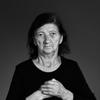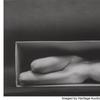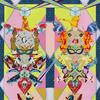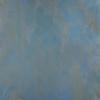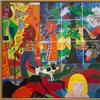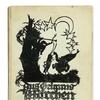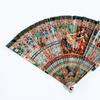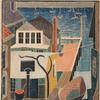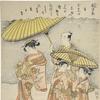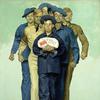500x511.jpg)
Making Paradise: Exploring the Concept of Eden Through Art and Islamic Garden Design
www.agakhancentre.org.uk/gallery/
The Aga Khan Centre Gallery is delighted to present Making Paradise, a major new exhibition that explores the concept of Eden through art and Islamic garden design.
Realised in collaboration with all three institutions at the Aga Khan Centre, the show brings together twenty two international multimedia artists each of whom will present an interpretation of the concept of Al-Jannah — the Garden of Eden, or Paradise in Islam. Alongside their work, the gallery will display digital reproductions of specific works from Aga Khan Museum’s permanent collection, many of which are being made accessible to UK audiences for the first time.
At the centre of the exhibition will be a film produced by the Aga Khan Development Network (AKDN). This not only highlights the many garden restoration and development projects achieved by the AKDN, but also powerfully conveys the message of His Highness Aga Khan IV, the hereditary Imam (spiritual leader) of the Shia Imami Ismaili Muslims Aga Khan IV, the Imam of Ismaili Muslims. His Highness the Aga Khan, who has commissioned many gardens himself, including those at the Ismaili Centre London, believes gardens are rich and rewarding places of gathering, not only capable of inspiring delight, but also of strengthening a sense of global community.
Throughout the history of Islam, gardens have been seen as embodiments of Paradise, reflecting the bounty of Allah and the blessings of life. Indeed, Paradise is described as a garden not only in the Qur’an, but in countless works of spiritual literature and poetry which portray a lush green sanctuary, irrigated by lakes and fountains. As His Highness said when he opened the Aga Khan Park in Toronto, ‘Gardens are a place where the ephemeral meets the eternal, and where the eternal meets the hand of man.’1
Making Paradise brings together digital reproductions of classical miniature paintings from Aga Khan Museum’s permanent collection with other eastern and western depictions of elements associated with Paradise, including Islamic geometry, traditional ceramic work, gold work embroidery, hand-stitched textiles, collage and modern applique techniques. The walls of the gallery will be transformed into the four symbolic quadrants of the Chahar Bagh, based on the ‘four gardens’ of Paradise in the Qur’an. The central focus is a silent fountain, designed by renowned Islamic garden designer Emma Clark. From this will spring a bespoke paper-cut installation of organic forms, created by American collage and installation artist Clare Celeste Börsch. Other featured works include calligraphic pieces by Soraya Syed, four ceramic plates by Yasmin Hayat, tulle embroidery by Olga Prinku and a soundscape of birdsong developed by Geoff Sample.
Says Esen Kaya, Aga Khan Centre Gallery Curator: ‘We are honoured to present an exhibition which embraces such diversity of artistic practice, and which visitors of all ages and backgrounds can delight in. Gardens are such important spaces and certainly in this time of Covid they have become even more important for people to be in. It feels timely to celebrate the concept of gardens and paradise at a time when our lives have been so restricted. This exhibition purposefully combines historical artworks from a variety of collections alongside contemporary artistic interpretations. In the exhibition you will find exquisite work by artists whose practice originates from ancient fine art training to those who use more contemporary methodology and materials to produce artworks that respond to the subject. This multi-sensory and richly diverse exhibition will have something for everyone, not least, an opportunity to consider ideas on paradise and what it means to us as individuals’.
Making Paradise is supported by a full learning and engagement programme which will be accessible to all ages, abilities, social, economic and religious backgrounds, developed in collaboration with the Aga Khan Museum and the Aga Khan Trust for Culture. The exhibition will also include talks delivered by Emma Clarke and other key project partners including the Royal Horticultural Society. We will be offering a comprehensive learning programme that will cover workshops both online and in person later in the year. Some of the exhibiting artists are lecturers and graduates of the Prince’s School of Traditional Arts in London. This show includes newly commissioned work by UK based and international artists, giving the exhibition a global appeal. Alongside showing works from Aga Khan Museum, the Aga Khan Centre Gallery has collaborated with the collections team at the Royal Horticultural Society’s Lindley Library to identify botanical illustrations of specific trees, fruits and flowers mentioned in the Qur’an in relation to the gardens of paradise. This exciting show will appeal to audiences interested in gardens, Islamic Art, traditional fine art techniques including gilding, miniature painting and Islamic geometry. The show includes collaborations with The Prince’s School of Traditional Arts, whose patron is His Royal Highness The Prince of Wales, The Royal School of Needlework, whose patron is The Duchess of Cornwall, and The Royal Horticultural Society.
Adds Kaya: ‘The Aga Khan Centre is a place of education, insight and cultural exchange. We hope that Making Paradise will help to deepen our visitors’ understanding of Islam and Muslim cultures both past and present.’
Making Paradise is presented as a collaborative project between AKF-UK, AKU-ISMC, IIS, AKM and AKTC.
Note: In line with government regulations surrounding the ongoing Covid-19 pandemic, the exhibition will open by appointment only until the end of June. Tickets will be available through Eventbrite. For updated information please visit our website: www.agakhancentre.org.uk/gallery/

